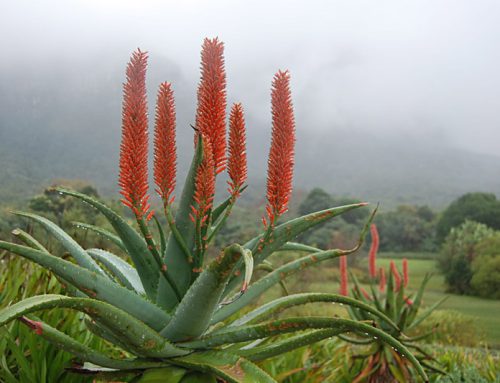 “They’re taking over the world!” a resident from the country town of Middelburg in the Karoo stopped me outside the ‘Chinese shop’. She was whispering but it was more like a shout. “Look!” she said. I looked and I saw a bunch of Chinese people offloading a truckload of stuff and carrying it into the bulging store. Clothing, plastic containers, solar panels, and pork bones…they were offloading them all.
“They’re taking over the world!” a resident from the country town of Middelburg in the Karoo stopped me outside the ‘Chinese shop’. She was whispering but it was more like a shout. “Look!” she said. I looked and I saw a bunch of Chinese people offloading a truckload of stuff and carrying it into the bulging store. Clothing, plastic containers, solar panels, and pork bones…they were offloading them all.
“You wait and see,” the woman nodded and pulled her mouth downwards before walking off. I didn’t know if she meant it as a threat or if she meant I should hang around watching for some kind of revelation. What I do know is that about three years ago a growing group of Chinese people came to Middelburg and opened their first ‘Chinese shop’, then two, then four. During this time they won over customers from similar stores run by South Africans.
What intrigues me is how people who speak Mandarin and ten words of English are able to open stores in every country town in South Africa and knock the socks off the locals. No wonder they’re taking over the world.
I entered the Chinese shop and headed for the solar panels; they’d been temporarily stacked next to the pork bones. “These?” I pointed to the panels, as a young Chinese man approached me to help. Despite not being able to speak more than a few words of English or any other South African language, he knew it is good business to help customers, something most South African assistants have forgotten.
He beckoned me to follow him outside the store where he pointed at the sun. Then he beckoned me back inside the store and switched on and off the lights. Then he took me back to the solar panels, showed me a battery, connecting wires and a pamphlet that explained DIY solar energy installation in Chinese-English. “Eezi solo you own free onorgy from the sign after two diz,” it assured.
“How much?” I asked. Those were two words he understood and he wrote R2000 on the notepad he was carrying, then made a large circular gesture with both hands to indicate the panels, the battery and the connecting wires were all included. “And those?” I pointed to the pork bones. He wrote R30 on his notebook.
It certainly was a revelation. The Chinese shop was a reflection of China as a nation. While us South Africans spend our time arguing about who owns what and why, and whether we should commit to renewable energy and when, the Chinese are getting on with global colonisation, economic transformation and energy security.
Five years ago over 17% of China’s electricity already came from renewable resources. Where were we? We were quibbling about feed-in tariffs. Still are.
Researchers from Harvard and Tsinghua University in Beijing say that China could meet all of its electricity demands from wind power alone by 2030.
Investment in renewable energy is now part of China’s economic stimulus strategy, not because it’s the right thing to do but because it’s super profitable and critical to development. And they don’t think small.
China is now the world’s largest manufacturer of solar panels, some of them first rate, some very third rate, but they’re pumping them out. It is also the world’s largest producer of wind turbines, surpassing Denmark, Germany, Spain, and the United States.
Like the Chinese shop in Middelburg, China is outcompeting all of its competitors in quantity, price and salesmanship.
Demonstrating his nation’s proactive character, the assistant in the Chinese shop had already picked up the DIY solar kit and was all set to head for the till when I stopped him. “I don’t think so,” I said. “Ah,” he replied, put down the solar kit, picked up a packet of pork bones and headed for the till. I bought the pork bones even though I don’t eat pork. He had made a sale and my indecisiveness had lightened my purse. No wonder they’re taking over they world.




